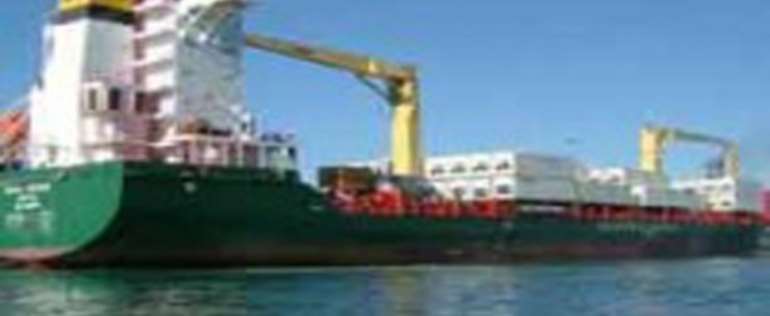NIMASA Blockade: Three NLNG Ships stranded in Bonny Bay

Forty-eight hours after the Nigerian Maritime Administration and Safety Agency (NIMASA) shut down the operations of the Nigeria Liquefied Natural Gas (NLNG) over unpaid levies, three ships belonging to the company may have been stranded.
The ships, according to official statement from the General Manager, External Relations, Mr. Kudo Eresia-Eke, include NLNG Lagos, NLNG Adamawa and Stena Clear Sky.
While the product-laden NLNG Lagos, heading to Pacem Brazil, could not depart due to the NIMASA blockade, the Shines, Portugal-bound NLNG Adamawa was denied entry.
Similarly, the Montoir, France-bound Stena Clear Sky was denied entry as a result of the blockade, which started around 4pm on Friday.
This is coming on the heels of strong indications that the NLNG may temporarily shut down operations following the blockade of its loading bay in Bonny.
The company told The Guardian, last night, that its production process has dangerously been affected by the blockade, as it could not discharge its products after production.
Also expressed the concern that NIMASA's action could affect the economy and image of the country.
A statement issued by NIMASA's acting Director, Shipping Development, Capt. Warredi Enisuoh, shortly after the action said it blocked all access to the Bonny Channel 'from the fairway buoy to buoys 17 and 18' over unpaid levies.
The blockade stops all NLNG vessels from leaving or entering the area until, according to NIMASA, all obligations are met.
But the General Manager, External Relations, Mr. Kudo Eresia-Eke Saturday said the agency resorted to self-help to extract levies from the company.
According to him, the Act establishing the NLNG does not empower it to pay such levies, as the company may not be able to defend the action before its local and international investors.
The NLNG is owned 51 percent by international investors and 49 percent by Nigerians through the Federal Government.
We understand that NIMASA has resorted to this as self-help to extract levies from the company. 'NLNG had continuously informed NIMASA that it is exempted by the NLNG ACT, an Act of parliament, which has provided waivers from such prescribed levies. Any such payments contrary to the NLNG ACT would therefore be illegal.'
A statement issued by the NLNG noted that NIMASA had earlier gone to court to resolve the issue, but later withdrew the case. 'We believe that under the rule of law the courts are the appropriate interpreters of the law, where there is an issue in contention. We believe that NIMASA as part of the Federal government of Nigeria is also a respecter of the rule of law.
It is believed that continued blockade of the Bay would translate to economic loss to the country as a result of imminent production shutdown that the action might cause. 'There is the greater potential reputation damage to the country, which will have impact on governments efforts to attract Foreign Direct Investment, and not augur well for Nigeria's effort to be seen as a destination to investments.'
The NLNG is a joint venture of the Nigerian National Petroleum Corporation) (49percent), Shell (25.6percent), Total LNG (15 percent) and Eni (10.4 percent)
The rift between NIMASA and the NLNG over levies is not entirely new, as the matter has been subject of litigation for years. While NIMASA wants levies, the NLNG insists the levies are not admissible in the light of the NLNG Act. The agency headed for the courts but withdrew at some point.
The NLNG yesterday said that NIMASA has been in discussion with it at various fora, including the National Assembly but stressed that it had insisted on doing what is lawful and congruent with the Act establishing it.
It was discovered that the Niger Delta Development Company had a similar issue with the NLNG but had to seek redress from the courts, going all the way to the Supreme Court, where it lost out.
